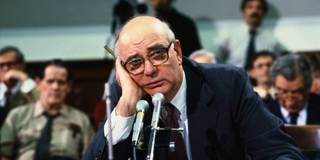A History of Economic Whac-A-Mole
In an insightful new history of US economic policymaking since 1961, Fortuna emerges as the primary narrative engine. While there has been little “progress” in figuring out how to manage modern economies in the interest of macroeconomic stability, there have been useful lessons for today's policymakers.

BERKELEY – The big lesson of the past 60 years of US economic policy, according to former vice chair of the US Federal Reserve and current Princeton University economist Alan S. Blinder’s new book, A Monetary and Fiscal History of the United States, 1961-2021, is that there is no big lesson.